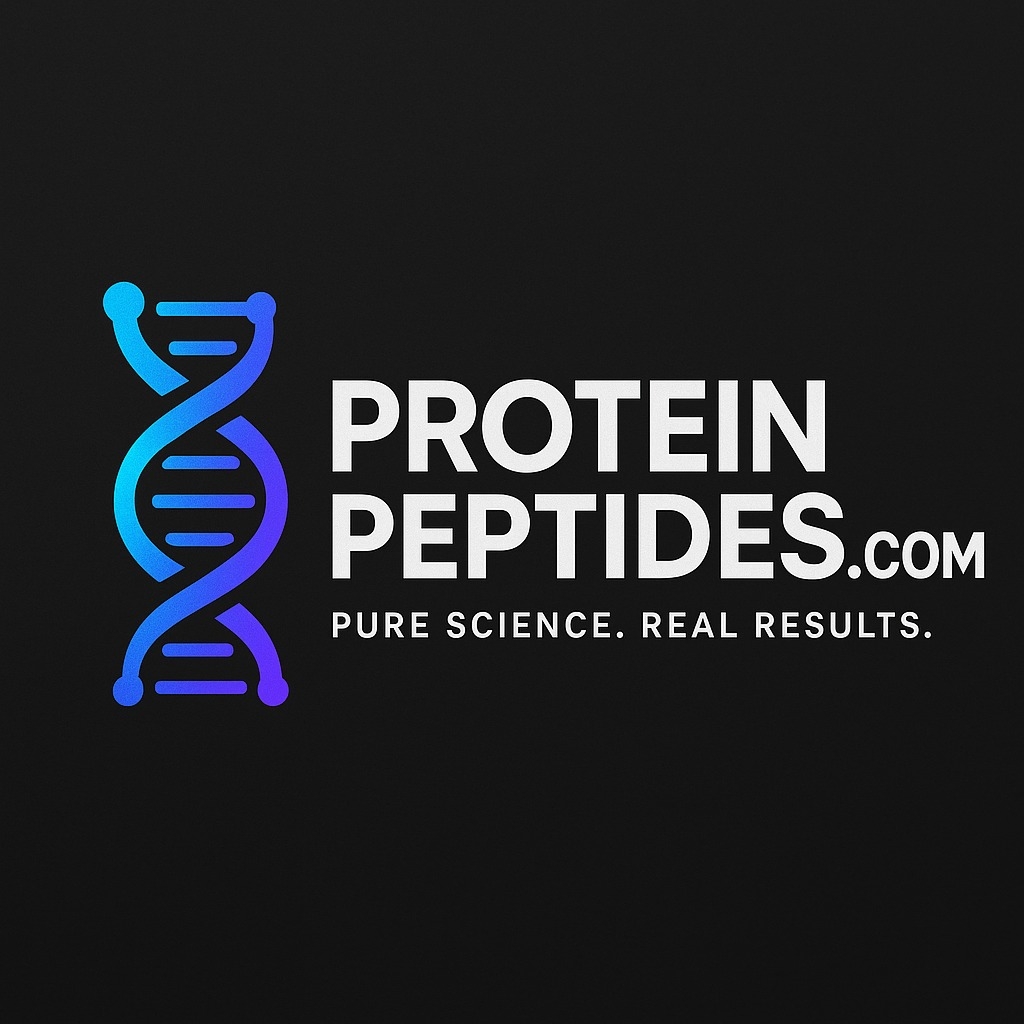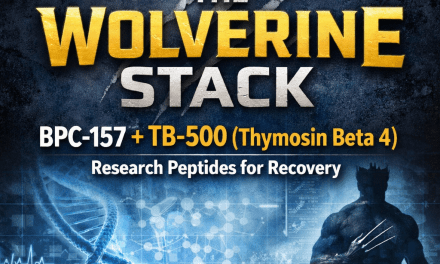Peptides Accelerate Muscle Recovery
Muscle recovery is a critical component of overall fitness and well-being, especially for athletes and fitness enthusiasts. It ensures optimal performance, prevents injuries, and promotes long-term muscle health. Peptides, small chains of amino acids that play vital roles in cellular functions, have emerged as a revolutionary tool in enhancing muscle repair. This article explores the science behind peptides, their role in muscle recovery, and their potential applications for individuals seeking faster and more efficient healing.
Understanding Peptides and Their Mechanisms
Peptides are naturally occurring molecules that serve as messengers within the body, influencing a range of biological processes. When it comes to muscle recovery, specific peptides target mechanisms that promote tissue repair, reduce inflammation, and improve overall cellular function.
One of the primary ways peptides aid in recovery is by stimulating the production of growth factors. These proteins regulate cell growth, division, and repair, ensuring damaged muscle fibers are rebuilt stronger and more resilient. Peptides also enhance collagen production, crucial for maintaining connective tissue health and preventing injuries.
Key Peptides for Muscle Recovery
Several peptides are particularly effective in accelerating muscle repair:
- BPC-157 (Body Protection Compound 157):
Known as a “healing peptide,” BPC-157 is derived from a protein found in the stomach. It has gained recognition for its ability to promote tissue regeneration, reduce inflammation, and expedite recovery. BPC-157 enhances blood flow to injured areas, delivering essential nutrients and oxygen to repair damaged muscles more quickly. - TB-500 (Thymosin Beta-4):
This peptide is naturally found in the thymus gland and plays a crucial role in wound healing and tissue repair. TB-500 enhances cell migration and differentiation, aiding in the repair of torn or strained muscles. Its ability to reduce inflammation makes it invaluable for managing sports-related injuries. - IGF-1 (Insulin-Like Growth Factor-1):
IGF-1 stimulates muscle growth and repair by promoting protein synthesis and inhibiting muscle breakdown. This peptide mimics the effects of growth hormone, accelerating recovery and improving strength after intense physical activity. - Collagen-Stimulating Peptides:
Peptides that boost collagen production, such as collagen peptides or hydrolyzed collagen, strengthen tendons, ligaments, and cartilage. These peptides play a significant role in preventing injuries and supporting recovery from connective tissue damage.
How Peptides Enhance Muscle Recovery
Peptides work through multiple pathways to accelerate muscle healing:
- Stimulating Cellular Repair: Peptides like BPC-157 and TB-500 promote the regeneration of damaged muscle fibers by activating repair mechanisms at the cellular level. This ensures faster recovery from tears, strains, or overuse injuries.
- Reducing Inflammation: Inflammation is a natural response to muscle damage but can delay recovery if prolonged. Peptides mitigate excessive inflammation, creating an environment conducive to healing.
- Improving Blood Flow: Enhanced blood circulation delivers essential nutrients, oxygen, and growth factors to injured areas, expediting the repair process.
- Boosting Protein Synthesis: IGF-1 and other growth-promoting peptides increase protein synthesis, rebuilding muscle tissue and enhancing strength.
- Preventing Muscle Atrophy: Peptides help maintain lean muscle mass during periods of reduced activity, such as injury recovery or rehabilitation.
Benefits of Peptides for Muscle Recovery
Incorporating peptides into a recovery regimen offers several advantages:
- Faster Healing: By targeting the root causes of muscle damage, peptides significantly reduce recovery time after injuries or intense workouts.
- Enhanced Performance: Improved muscle repair allows individuals to train more effectively and consistently, leading to better athletic performance.
- Reduced Risk of Injury: Strengthened connective tissues and reduced inflammation decrease the likelihood of re-injury or chronic issues.
- Support for Chronic Conditions: Peptides can benefit individuals with chronic muscle pain or degenerative conditions by promoting long-term tissue health.
- Improved Overall Well-Being: Faster recovery and reduced soreness improve overall quality of life, enabling individuals to stay active and engaged.
Applications in Real-World Scenarios
Peptides have proven beneficial in various contexts, including:
- Sports and Athletics: Athletes frequently experience muscle strains and overuse injuries. Peptides provide an effective solution for faster recovery, allowing them to maintain peak performance.
- Post-Surgical Recovery: Following surgeries, especially orthopedic procedures, peptides enhance tissue repair and reduce recovery time.
- Chronic Injury Management: For individuals with recurring muscle or joint issues, peptides offer a long-term solution to prevent flare-ups and maintain mobility.
- Fitness Enthusiasts: From gym-goers to recreational athletes, peptides support recovery from intense training sessions, reducing soreness and fatigue.
Safety and Considerations
While peptides offer significant benefits, it’s essential to use them responsibly. Factors such as dosage, administration method, and individual health conditions must be considered. Peptides should only be used under the guidance of a healthcare professional to ensure safety and effectiveness.
Potential side effects of peptides are generally mild but may include redness or irritation at the injection site, fatigue, or digestive discomfort. Choosing high-quality, pharmaceutical-grade peptides from reputable sources minimizes risks and ensures optimal results.
Integrating Peptides into a Recovery Routine
To maximize the benefits of peptides, it’s essential to pair their use with a comprehensive recovery strategy:
- Nutrition: Adequate protein intake supports muscle repair, while anti-inflammatory foods like fruits, vegetables, and omega-3 fatty acids promote healing.
- Hydration: Staying hydrated ensures optimal blood flow and nutrient delivery to muscles.
- Rest and Sleep: Quality sleep is critical for muscle recovery, as it’s during rest that the body repairs itself.
- Physical Therapy: Stretching, massage, and low-impact exercises complement peptide therapy by maintaining mobility and preventing stiffness.
The Future of Peptide Therapy
As research on peptides advances, their applications in muscle recovery and overall health are likely to expand. Personalized medicine, driven by genetic and metabolic profiling, will enable tailored peptide protocols for individual needs. Additionally, innovations in peptide delivery methods, such as oral or topical formulations, will increase accessibility and convenience.
Conclusion
Peptides are transforming the landscape of muscle recovery, offering a science-backed solution for faster healing, reduced inflammation, and enhanced performance. Whether you’re an athlete, fitness enthusiast, or someone recovering from an injury, peptides provide a powerful tool to support your journey toward optimal muscle health. With proper guidance and a holistic approach to recovery, peptides can help you achieve your goals and maintain an active, fulfilling lifestyle.
- Shimasaki S, Ling N. Identification and structure of insulin-like growth factor-binding proteins (IGFBPs). Nature. 1986;323:541–545. https://doi.org/10.1038/323541a0
- Francis GL, et al. Insulin-like growth factor analogs with reduced binding to IGFBPs and increased biological potency. J Mol Endocrinol. 1992;8(3):213–223. https://doi.org/10.1677/jme.0.0080213
- Mohan S, Baylink DJ. IGF system components and their role in bone metabolism. J Clin Endocrinol Metab. 2002;87(9):4381–4389. https://doi.org/10.1210/jc.2002-020636
- Bach LA. 2018 Sir John Eccles Lecture: IGF-binding proteins — an update. Growth Horm IGF Res. 2018;39:12–19. https://doi.org/10.1016/j.ghir.2018.01.002
- Velloso CP. Regulation of muscle mass by growth hormone and IGF-I. Eur J Appl Physiol. 2008;102(6):701–712. https://doi.org/10.1007/s00421-007-0640-6
- Clemmons DR. Role of IGF-I in skeletal muscle mass maintenance. Endocr Rev. 2007;28(5):466–486. https://doi.org/10.1210/er.2007-0002





